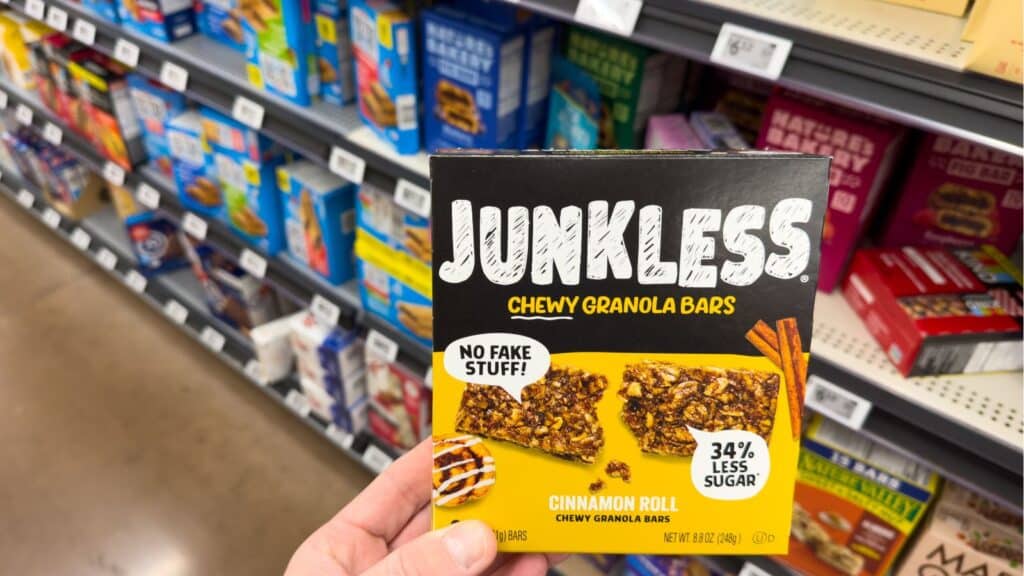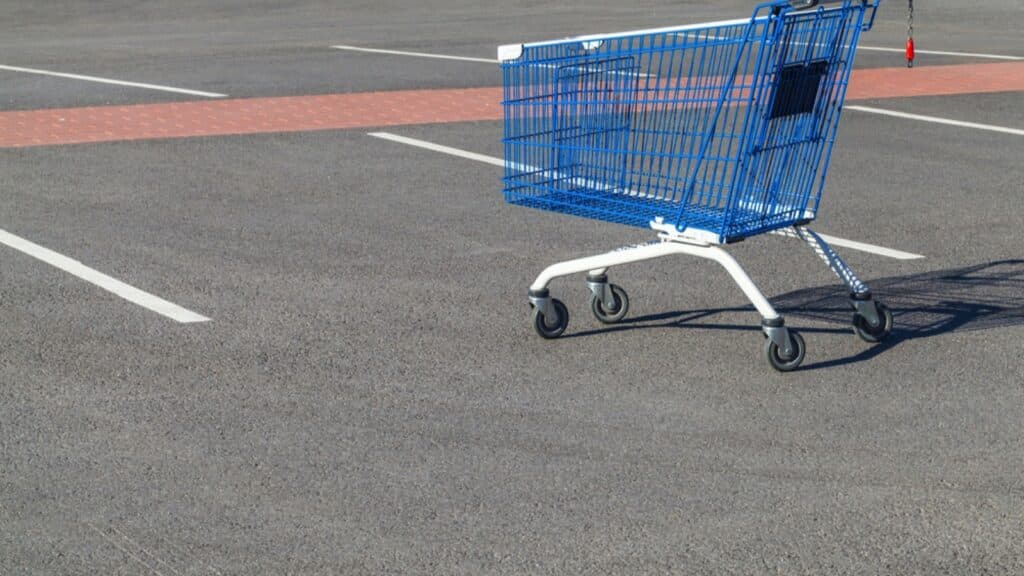Grocery stores are designed to get you to spend more than you planned. From layout to pricing to promotions, every detail pushes you to add extra items to your cart. Once you recognize these sneaky tricks, it’s easier to avoid them and keep more money in your pocket!
Frozen and Pre-Made Items

Frozen dinners, pre-cut fruit, and meals ready to heat save time but cost more. You pay for convenience in packaging, labor, and energy to preserve them. Cooking from scratch or buying whole produce often delivers better per-pound value. Delish notes that shoppers who rely on pre-made items consistently see higher grocery bills.
💸 Take Back Control of Your Finances in 2025 💸
Get Instant Access to our free mini course
5 DAYS TO A BETTER BUDGET
Aspirational or Trendy Groceries

New food trends, viral recipes, or prestige brands look appealing but often come at a premium. People buy them hoping for variety or status, even when they rarely use them. That leads to waste and budget strain. Delish points out that aspirational purchases often cost far more per use than everyday staples.
Shopping Without a List

Walking in without a plan invites impulse buys. You see something that looks good, add it, then another item, and suddenly your cart is full. Coming home to a big bill is common when you skip planning. A written list helps you stay focused and cut down on extras.
Buying Single Items Instead of Bulk When it Makes Sense

Bulk buying can save money, but only when you use everything before it spoils. Large packages of items you seldom use often end up in the trash. Checking unit prices reveals whether bigger sizes really offer savings. Smart bulk buying means balancing value with realistic usage.
Shopping Hungry

You make worse decisions when you shop hungry. Cravings push you toward snacks, sweets, or ready-to-eat food that was not on your list. Even small impulse buys add up over a month. Eating before shopping helps you resist these temptations.
Using Tote Bags Without a Cart or Basket

Carrying reusable bags through the store without a cart or basket hides how much you are buying. Without a clear view of your items, you may overspend without realizing it. This small psychological trick makes it easier to justify extra purchases. Using a cart or basket keeps you more accountable.
Not Returning or Inspecting Items Closely

Expired or damaged goods sometimes make it past the shelf. Many people do not return them, assuming it is not worth the effort. Stores often allow returns or provide refunds, and ignoring this option wastes money. Checking items carefully before purchase prevents throwing away food you cannot use.
Sale Signs That Mask True Costs

“Buy one, get one” offers and bold sale signs often hide inflated base prices. Sometimes the per-unit cost is actually higher unless you buy in bulk. These promotions are designed to create urgency and boost sales. MoneyTalksNews explains that misleading promotions are one of the most common ways grocery stores squeeze extra money from shoppers.
Endcap and Checkout Displays

Products at the end of aisles or near registers catch attention and encourage impulse buying. Shoppers often assume these items are discounted, but many are not. Brands pay for this prime placement, and prices can be higher than what you would find deeper in the aisle. Avoiding these displays helps you stick to your budget.
Oversized Shopping Carts

Modern grocery carts are larger than those used in the past. When you push a bigger cart, your items look small, nudging you to buy more. Research shows shoppers spend significantly more when using oversized carts. Opting for a basket or smaller cart helps limit overspending.
Store Layouts That Force You Through Temptation Zones

Stores place essentials like milk and eggs at the back so you must walk past tempting displays. This layout increases the chance of tossing extras into your cart. Snacks, drinks, and sweets are often placed along these routes for maximum visibility. Knowing this trick helps you stick to your list and move quickly to what you need.
21 Budget Grocery Shopping Tips To Stretch Your Food Budget

Are you having trouble finding extra money in your budget to save or pay off debt? Did you know that one of the easiest categories to cut is your food budget? Most families drastically overspend on food each month but there are many ways to do budget grocery shopping and stretch your food budget without feeling deprived. 21 Budget Grocery Shopping Tips to Stretch Your Food Budget



